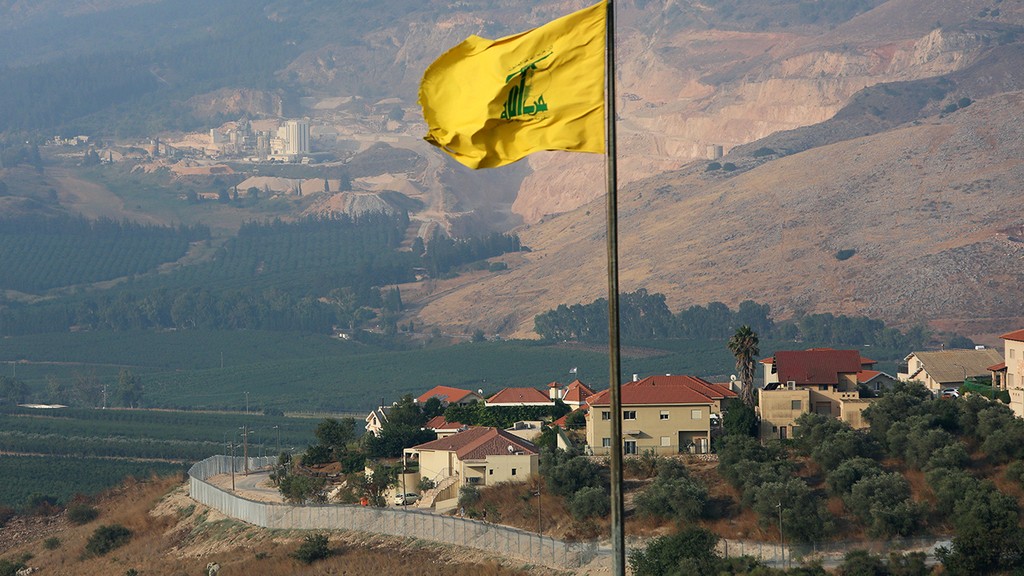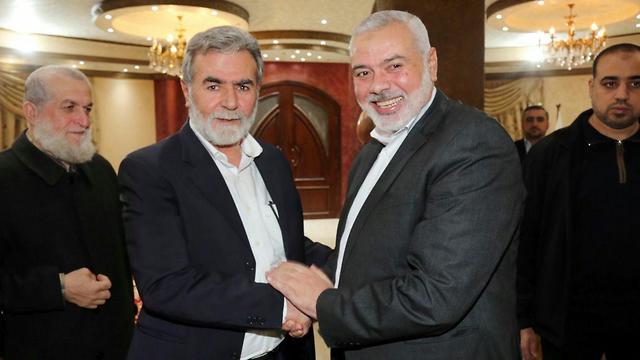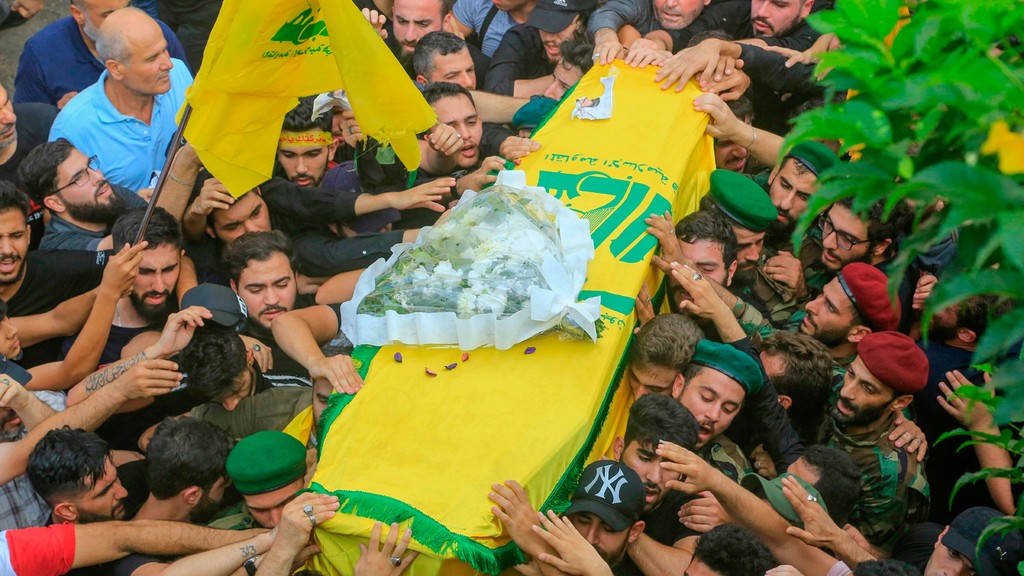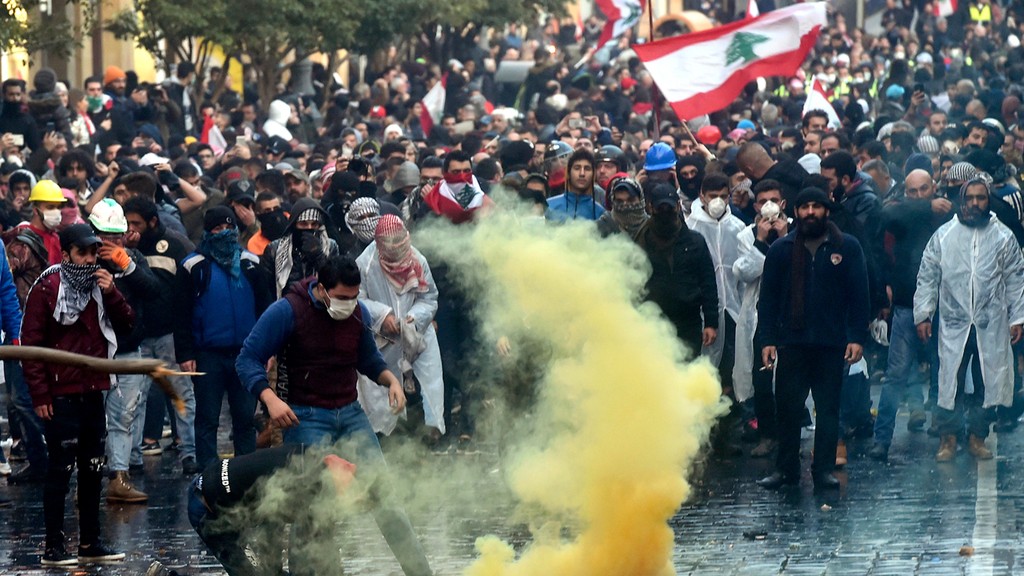Israel's northern border has been quiet for almost a decade and a half since the end of the 2006 Second Lebanon War. It is one of the most criticized conflicts in Israeli history, and yet it has provided calm on the northern front.
Last Monday's attempted infiltration by a Hezbollah cell ended without casualties, as did an earlier incident in September of last year. Perhaps these are the rules of the game Hezbollah and Israel are playing, but even so, there is no doubt that the border with Lebanon, certainly in comparison with the early 2000s – is very quiet.
4 View gallery


A Hezbollah flag flies high near an Israeli border community on the Israel Lebanon border
(Photo: Reuters)
There is a cause for concern though. Since the end of the fighting in 2006 and until today, Hezbollah has been arming itself with massive amounts of missiles and rockets.
There are 130,000 missiles aimed at targets all over Israel, according to estimates.
With or without Hezbollah's efforts to turn many of these missiles into precision weapons, which Israel has purportedly been working hard to foil, and with or without any more weapons systems, this arsenal poses a real threat to Israel's safety.
It is logical to argue that Lebanon does not need nor desire an additional confrontation with Israel, which would cause destruction to its infrastructure or - as some in Israel have warned - plunge the country back in the Middle Ages.
But the country has been taken hostage by Hezbollah. It is completely under the terror group's control, and logic may not be a determining factor in what comes next.
Lebanon is in the midst of the worst financial crisis in its history. Inflation has reportedly reached 56%, turning it into a failed state akin to Venezuela or Zimbabwe.
Unemployment figures have jumped from 6.5% to 30% and half the country is living below the poverty line, 30% in inhuman conditions. The Lebanese people are going hungry and public protests against the government and the banks are increasing.
It is safe to assume Israel is not prominent on the minds of most of the country's population. The same is true of Hezbollah's benefactor Iran, which is also suffering from an economic crisis and whose population cannot understand why they are made to go hungry while their leaders chose to finance proxies such as Hezbollah.
But in Lebanon, the sectarian politics are a little more complicated.
Shi'ite Muslims are the strongest and best-organized sector of the population, and not only because of their military might. They are better positioned to respond to the economic difficulties through charities and community outreach programs that provide aid to their struggling constituents.
Radical Islamist organizations have an inner motivation that is advantageous at times of financial shortages, for they have preached that the need for sacrifice triumphs the need to exist in comfort.
The radical Gaza-based Hamas leader Ismail Haniyeh revealed earlier this week that the United States had offered $15,000,000 to rebuild the besieged enclave - if the terror group would disarm.
The answer came as no surprise. Hamas has rejected similar offers in the past so there could have been no expectation that Haniyeh would respond to the offer differently.
4 View gallery


Hamas leader Ismail Haniyeh, right, with Islamic Jihad head Ziyad al-Nakhalah
(Photo: Reuters)
Just like Hamas, Iran and Hezbollah prefer to keep the "struggle" alive over a more prosperous existence for their people - as their vast investment in weaponry has shown.
Hezbollah said Monday's incident was not the promised retaliation for the death of its operative in Syria last week during an airstrike attributed to Israel.
The group's leader Hassan Nasrallah is known for his boasting, but on matters of revenge he has lived up to his word.
So even if we, as Westerners, think there is no logic in a further escalation of hostilities, the Shi'ite cleric marches to the tune of his own drum. After years of fighting alongside the Syrian regime in that country's brutal civil war, Hezbollah must now show Iran it is still relevant, and that can only be achieved by keeping the conflict with Israel alive.
4 View gallery


Funeral of a Hezbollah militant allegedly killed by Israel in Syria in August 2019
(Photo: AFP)
We must hope there is no war looming, for the only successful wars are those that are averted. But we are living in a region that is governed by different rules of logic.
Lebanon has been refusing international aid because it may well affect Hezbollah's power in the country. Hamas prefers more weapons over huge investments in the welfare of its people, and Iran prefers to divert funds to its nuclear program and its proxies over its own civilians.
We may hope that the recent incident on the northern border is over - but we must be aware that our neighbors and their priorities have not changed.


